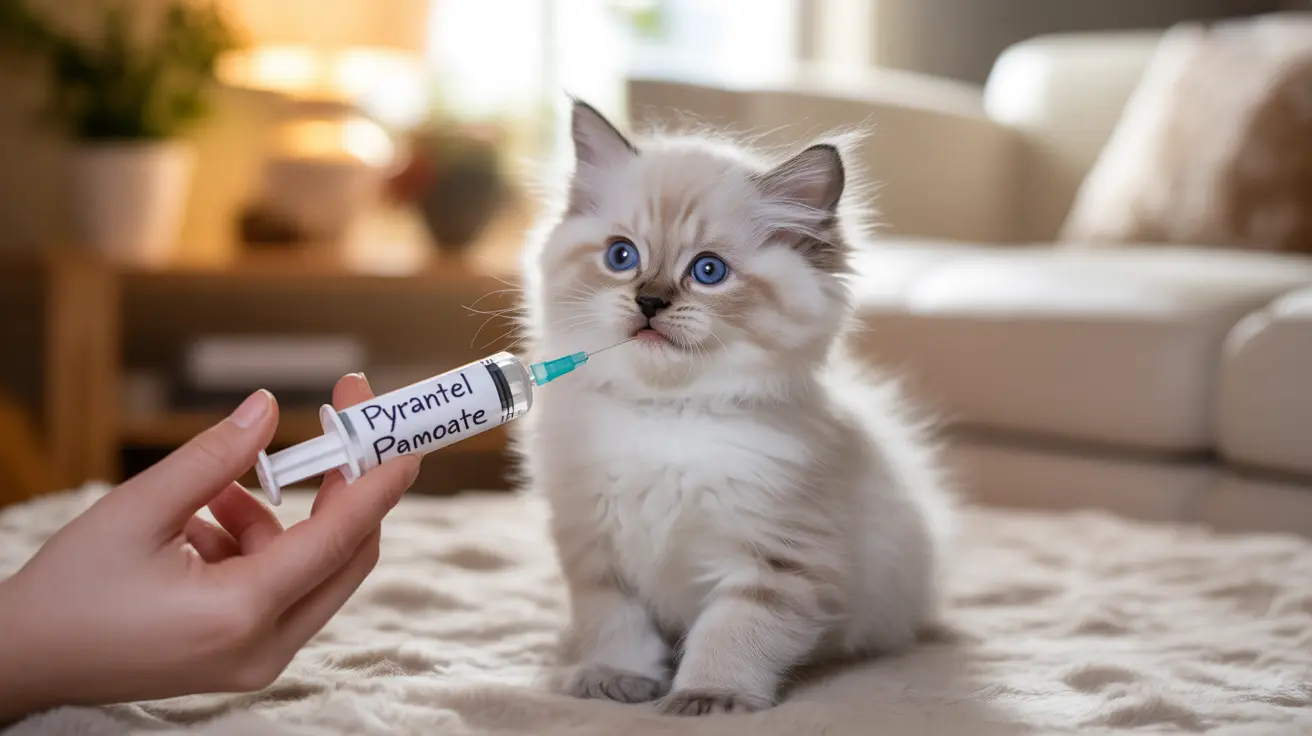When it comes to protecting your kitten from common intestinal parasites, understanding the correct pyrantel pamoate dosage is crucial. This comprehensive guide will walk you through everything you need to know about safely administering this important deworming medication to your kitten.
As a widely trusted anthelmintic medication, pyrantel pamoate effectively treats roundworms and hookworms in kittens. However, proper dosing based on your kitten's weight is essential for both safety and effectiveness.
Understanding Pyrantel Pamoate Dosage for Kittens
The standard concentration of pyrantel pamoate for kittens is typically 50 mg/mL in suspension form. The basic dosing rule is 0.1 mL per pound of body weight when using this concentration. Here's a detailed breakdown:
Standard Kitten Dosage Chart (50 mg/mL suspension)
- 1 pound kitten: 0.10 mL
- 2 pound kitten: 0.20 mL
- 3 pound kitten: 0.30 mL
- 4 pound kitten: 0.40 mL
- 5 pound kitten: 0.50 mL
Timing and Administration Guidelines
Kittens should typically begin deworming treatment at 2-3 weeks of age. The medication needs to be repeated every 2-3 weeks until they reach 12 weeks old to ensure complete parasite elimination.
Best Practices for Administration
- Use an oral syringe for precise measurement
- Administer directly into the mouth or mix with a small amount of food
- Ensure the entire dose is consumed
- Monitor your kitten for 30 minutes after administration
Safety Considerations and Precautions
While pyrantel pamoate is generally safe for kittens, it's important to follow proper dosing guidelines. Always verify the concentration of your medication, as different products may vary. Some formulations may be 5% solution, which requires different dosing calculations.
Common Side Effects to Monitor
- Mild gastrointestinal upset
- Temporary loss of appetite
- Occasional vomiting or diarrhea
- Signs of allergic reactions (rare)
Treatment Schedule and Follow-up Care
Successful deworming requires a consistent schedule and proper follow-up. Regular fecal testing can help confirm the effectiveness of treatment and determine if additional doses are needed.
Recommended Treatment Timeline
- Initial dose at 2-3 weeks of age
- Repeat every 2-3 weeks through 12 weeks
- Additional treatments based on exposure risk and veterinary guidance
- Regular wellness checks to monitor progress
Frequently Asked Questions
How do I determine the correct pyrantel pamoate dosage for my kitten based on weight?
Use the standard dosage of 0.1 mL per pound of body weight for 50 mg/mL suspension. Always weigh your kitten accurately and use a proper measuring syringe for precise dosing.
When should I start giving pyrantel pamoate to kittens and how often should it be repeated?
Start deworming at 2-3 weeks of age, repeating every 2-3 weeks until the kitten is 12 weeks old. Consult your veterinarian for a personalized schedule based on your kitten's specific needs.
Can pyrantel pamoate treat all types of intestinal worms in kittens, like tapeworms and hookworms?
No, pyrantel pamoate specifically treats roundworms and hookworms. It is not effective against tapeworms, which require a different medication like praziquantel.
What is the best way to administer pyrantel pamoate liquid to young kittens safely?
Use an oral syringe to measure the exact dose and gently administer it directly into the kitten's mouth, or mix it with a small amount of food to ensure complete consumption.
Are there any side effects or risks I should watch for when using pyrantel pamoate on my kitten?
While generally safe, watch for signs of gastrointestinal upset, loss of appetite, or unusual behavior. Contact your veterinarian if you notice any concerning symptoms after administration.
Remember to always consult with your veterinarian before starting any deworming protocol, as they can provide personalized advice based on your kitten's specific needs and circumstances.






